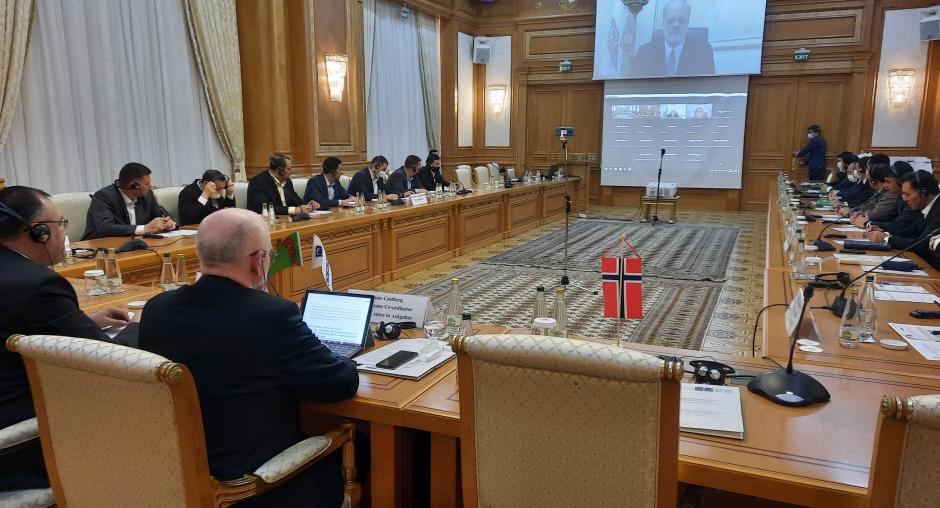OSCE-organized online workshop focuses on humanitarian assistance for refugees, migrants and internally displaced persons

An OSCE-organized regional online workshop on international humanitarian assistance for refugees, migrants and internally displaced persons, concluded in Ashgabat on 4 March 2022.
The event focused on exchanging international best practices in providing humanitarian assistance for internally displaced persons, migration governance, and identification of presumed victims of trafficking in mixed migration flows.
The event brought together more than seventy officials from relevant border agencies of the five Central Asian countries, representatives from the UN and non-governmental organizations dealing with migration issues and the EU-funded Border Management Programme in Central Asia (BOMCA) and OSCE experts.
During the opening session, John MacGregor, Head of the OSCE Centre in Ashgabat said: “Around the world, millions of individuals are on the move, most often involuntarily, as the result of human-made or environmental upheaval; including in the OSCE region. As a result, promoting effective migration policies is an area of strategic importance for stability and economic growth”.
“We can see that a regional approach to comprehensive migration management is essential, and there are numerous related OSCE commitments, going back as far as 1975,” he added.
Representatives from the International Organization for Migration, the United Nations High Commissioner for Refugees, the Norwegian Refugee Council and BOMCA presented their policies and activities to provide humanitarian assistance for those in need, stressing the importance of inter-governmental and inter-agency co-ordination in effectively managing mixed migration flows.
Experts emphasized that human mobility was the defining feature of the 21st century, and it would remain so in many years to come. It was noted that whatever the cause, be it humanitarian or socioeconomic, migration-related challenges could only be best addressed through enhanced mutual co-operation, building international and regional coalitions of multiple stakeholders and balancing state security with human security.
Representatives from Kazakhstan, Kyrgyzstan, Tajikistan, Turkmenistan and Uzbekistan shared best practices and experiences of their countries in migration management.
OSCE experts discussed OSCE commitments and instruments designed to respond to migration-related challenges. They stressed that the benefit of the OSCE in the discussion on governance of large unregulated movements of people lay in its vision and approach to migration governance-related challenges through the “migration-security nexus”, taking into full account national as well as human security aspects.
The workshop was organized within the framework of the Centre’s extrabudgetary project “Strengthening State Border Service Capacities of Turkmenistan” and supported financially by the Government of Norway.
